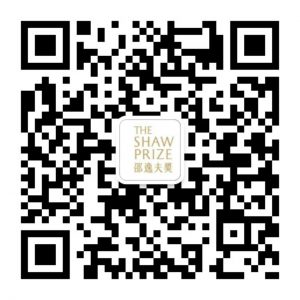I am the David G Nathan Distinguished Professor of Pediatrics at Harvard Medical School, and HHMI Investigator at Boston Children’s Hospital. I was born and raised in New York City. As a young boy, I was most interested in math, science, baseball, and the New York Yankees. Upon graduating high school, I entered MIT in Cambridge, Massachusetts, with the intention of studying physics or chemistry. However, an introductory biology class taught by Salvador Luria, who was later to receive a Nobel Prize for pioneering genetic research, introduced me to the life sciences. I switched to biology as a major and was immersed in courses in cell and biochemistry. Following graduation with a BS degree from MIT, I entered the MD program at Harvard Medical School. As a medical student, I became interested in genetic diseases and how fundamental science might help explain the underlying causes and eventually lead to therapies. Upon receiving my MD degree, I was trained in pediatrics at Boston Children’s Hospital. As an alternative to military service, I spent 2 years in the Public Health Service in the laboratory of Philip Leder at the NIH. There, I began molecular studies of blood cells. In 1975 I returned to Boston Children’s Hospital for a fellowship in pediatric hematology/oncology and was recruited to the faculty by David G Nathan, as an Assistant Professor, Harvard Medical School, two years later. I was promoted to Professor in 1986. I served as Chairman of the Department of Pediatric Oncology at the Dana Farber Cancer Institute from 2000 to 2016, and currently hold the David G Nathan Distinguished Chair at Harvard Medical School. I have been an Investigator of the Howard Hughes Medical Institute from 1986 to the present.
Throughout my career, I have focused on the molecular basis of human blood disorders and mechanisms governing blood cell development, as well as aspects of stem cell biology and oncogenesis. I provided the first comprehensive molecular dissection of an inherited disorder (the thalassemia syndromes), and characterized genes responsible for other human blood disorders, including X-linked chronic granulomatous disease (the first positional cloning). I identified the first hematopoietic transcription factors (the GATA family) and characterized their roles in blood cell development and cancer. This work laid the foundation for the field of molecular hematology. My studies of BCL11A, a repressor of fetal hemoglobin (HbF), have elucidated the regulation of globin gene switching and led to novel genetic approaches to the thalassemias and sickle cell disease, including the first approved gene editing therapies. I and my trainees demonstrated how BCL11A acts directly in the switch from fetal to adult hemoglobin, and can be manipulated genetically to turn fetal hemoglobin back on to treat the hemoglobin disorders. My laboratory is currently studying BCL11A protein with the goal of developing small molecule therapeutics for treatment of the hemoglobin disorders on a global scale.
I was elected to the National Academy of Sciences (NAS), National Academy of Medicine (NAM), American Academy of Arts and Sciences, and the American Philosophical Society. My honors and awards include the E. Mead Johnson Award, Warren Alpert Prize, Helmut Horten Foundation Prize, Distinguished Research Award from the Association of American Medical Colleges (AAMC), E. Donnall Thomas, Dameshek and Basic Science Mentor Awards of the American Society of Hematology (ASH), Jessie the Stevenson Kovalenko Medal of the National Academy of Sciences (2013), William A. Allan Award of the American Society of Human Genetics (2014), George M. Kober Medal of the American Association of Physicians (2018), Mechthild Esser Nemmers Prize in Medical Science of Northwestern University (2018), King Faisal Prize in Medicine (2020), Harrington Prize for Innovation in Medicine (2020), Tobias Prize Lecture of the International Society of Stem Cell Research (2021), Gruber Prize in Genetics (2021), Canadian Gairdner International Award (2022), Society of Memorial Sloan Kettering Prize (2023), George Stamatoyannopoulos Mentorship Award of the American Society of Gene and Cell Therapy (2023), Honorary Doctorate (PhD honoris causa) University of Montreal, the Elaine Redding Brinster Prize (2024), TIME100 list, and the Ernest Beutler Lecture and Prize (2024). These awards recognize the outstanding work of trainees in my laboratory. I have always considered working in academic medical research a privilege granted to few.
12 November 2024 Hong Kong
